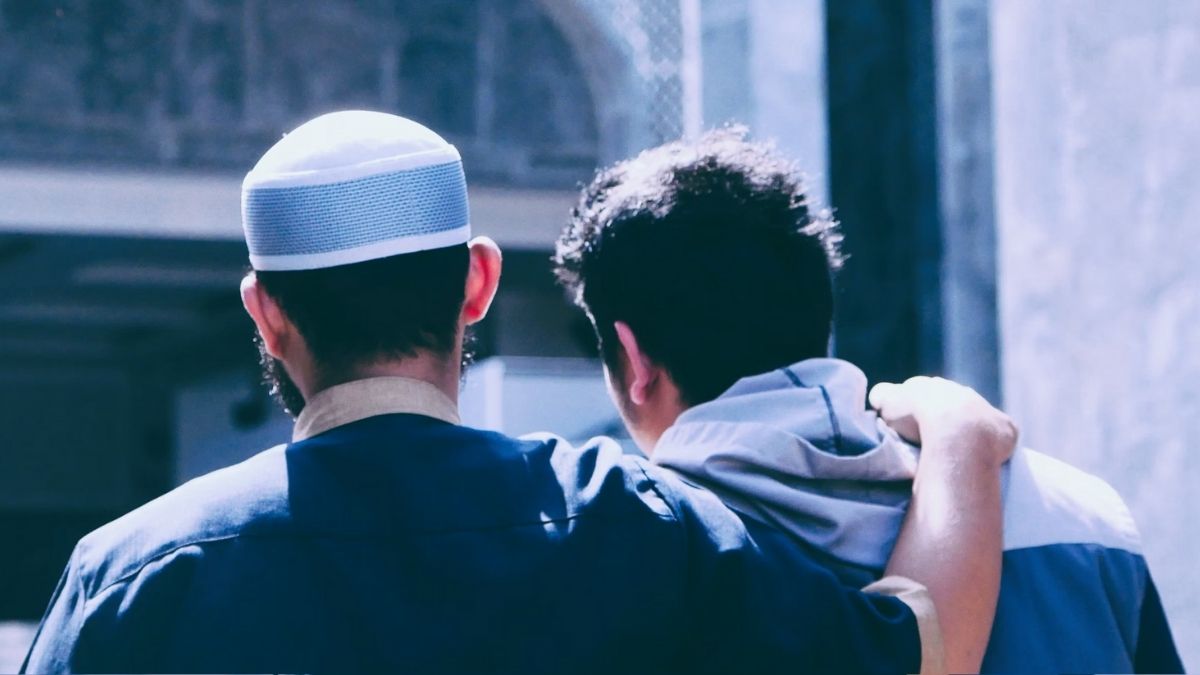
Introduction: The Power of Unity in Faith
In the heart of Islam lies a profound sense of brotherhood, a connection that transcends race, language, and geography. This unity forms what Muslims call the Ummah, the global community of believers bound together by faith in Allah.
The Ummah is not just a collective term; it represents a spiritual bond that brings Muslims together as one family. In an age where divisions often dominate society, Islam reminds us that strength and peace are found in unity.
Allah says in the Qur’an:
“And hold firmly to the rope of Allah all together and do not become divided.” (Qur’an 3:103)
This verse beautifully summarizes the essence of brotherhood in Islam: believers must support, care for, and protect one another, united by their shared devotion to Allah.
The Meaning of the Ummah in Islam
Understanding the Concept
The word Ummah in Arabic means “community” or “nation.” In Islam, it refers to all Muslims, regardless of culture, race, or background. This concept was established during the time of the Prophet Muhammad ﷺ, who created the first Muslim community in Madinah, a society based on justice, compassion, and equality.
The Ummah is not bound by nationality but by faith. Every Muslim in Asia, Africa, or America is part of this spiritual family. This unity strengthens the global body of believers and reminds them that they share one purpose: to worship Allah and serve humanity.
Living the Ummah in Daily Life
Belonging to the Ummah means living with empathy, respect, and solidarity. Muslims are encouraged to care for one another as siblings in faith, feel others’ pain, and act selflessly.
The Prophet ﷺ said
“The example of the believers in their affection, mercy, and compassion for each other is that of a body. When any limb aches, the whole body reacts with sleeplessness and fever.” (Bukhari, Muslim)
This hadith paints a clear picture: when one member of the Ummah suffers, the entire community should feel it and respond with compassion and action.
Brotherhood: The Foundation of a Strong Community
Meaning
Brotherhood in Islam is not limited to words; it is a living relationship built on sincerity, humility, and care. True brotherhood means standing together in faith and helping one another stay firm on the path of righteousness.
This sense of unity is not just spiritual but practical. It promotes equality, respect, and cooperation. No believer is superior to another except in piety and good deeds.
Daily Life Application
Muslims can live out this brotherhood by offering support, showing kindness, and forgiving one another. Smiling at a fellow Muslim, helping a neighbor, or giving charity are all acts that strengthen the Ummah.
The Prophet ﷺ said:
“None of you truly believes until he loves for his brother what he loves for himself.” (Bukhari, Muslim)
When Muslims adopt this mindset, jealousy turns into encouragement, and division gives way to harmony. Brotherhood becomes the foundation upon which a peaceful, thriving community is built.
The Strength of Unity in the Modern World
Meaning
In today’s social media, competition, and constant comparison, it is easy to feel isolated or disconnected. Yet, Islam teaches that the strength of the Ummah lies in togetherness. When Muslims unite in purpose and faith, they become a force for goodness, justice, and positive change.
Division weakens hearts and societies, but unity heals wounds. When Muslims stand side by side in prayer, shoulder to shoulder, regardless of wealth or status, it symbolizes the equality and solidarity that Islam values deeply.
Daily Life Application
Building unity in the modern world begins with small actions: respecting differences, supporting local communities, and rejecting hatred or prejudice. Whether through volunteer work, community gatherings, or online support, every act that promotes unity strengthens the Ummah.
Muslims can also show solidarity by standing up for justice, defending the oppressed, and promoting peace in their neighborhoods and workplaces. The collective goodness of the Ummah reflects the beauty of Islam itself.
The Role of Compassion in the Ummah
Meaning
Compassion is the heart of unity. The Qur’an and Sunnah repeatedly remind believers to treat one another with mercy. A strong Ummah cannot exist without empathy, caring for people experiencing poverty, comforting the grieving, and guiding those who have strayed.
Allah says:
“The believers are but brothers, so make settlement between your brothers. And fear Allah that you may receive mercy.” (Qur’an 49:10)
This verse teaches that reconciliation and forgiveness are acts of worship. Differences and disputes may arise, but a believer’s duty is to restore peace with humility and fairness.
Daily Life Application
Muslims can embody this compassion by reaching out to those in need, sharing knowledge, and building bridges instead of walls. The smallest gesture, a kind word, a meal shared, or a prayer for someone in distress, can revive the spirit of brotherhood and bring hearts closer together.
The Prophet ﷺ as the Example of Unity
The Prophet Muhammad ﷺ was the perfect model of unity and brotherhood. His leadership in Madinah brought together tribes that had long been enemies. Through justice, forgiveness, and mutual respect, he built a community where love and fairness replaced hatred and division.
He reminded his followers that every Muslim, regardless of background, has equal value before Allah. His Farewell Sermon declared:
“No Arab has superiority over a non, Arab, nor a non, Arab over an Arab, nor a white over a black, nor a black over a white, except by piety and good action.”
These timeless words remind the Ummah that Islam stands against discrimination of all kinds and calls for unity under the light of taqwa (God consciousness).
Modern Reflection: The Ummah in Today’s Challenges
In the face of global challenges, from poverty and injustice to Islamophobia and division, the need for unity among Muslims is greater than ever. The Ummah must rise above differences and focus on what truly binds it: faith, mercy, and purpose.
Technology and globalization have connected Muslims like never before. They can become a source of hope for humanity through shared knowledge, charity, and advocacy. When united, the Ummah can counter hate with love, ignorance with wisdom, and injustice with fairness.
Unity is not achieved through slogans but through action, supporting one another, forgiving mistakes, and standing together for truth.
Reflection for the Reader
The spirit of the Ummah begins within each believer. Reflection brings questions that guide the heart toward unity:
• How often do Muslims reach out to support their brothers and sisters in faith?
• Are communities promoting love, forgiveness, and cooperation?
• Do individuals strive to remove prejudice from their hearts?
• What can each believer do to make the Ummah stronger today?
When Muslims embody the values of compassion and brotherhood, they strengthen the global Ummah and their relationship with Allah.
A Journey Shared Through Faith
Abdul Jihad Islam’s book, “Practicing Islam in Prison and Society,” beautifully reflects the importance of unity, brotherhood, and faith in building resilience. Drawing from personal experience, the author demonstrates how belonging to the Ummah provides hope even in isolation and strength in moments of despair.
Through his journey, he highlights Islam thrives when believers support one another. Even in confinement, the feeling of brotherhood and the remembrance of Allah connected him to a community beyond walls. The book reminds readers that unity is not bound by location or circumstance, it begins with the heart. Readers who seek to understand the beauty of Islamic brotherhood and the power of community will find in this work a deep and inspiring reflection on the strength of the Ummah and the peace found in unity.

